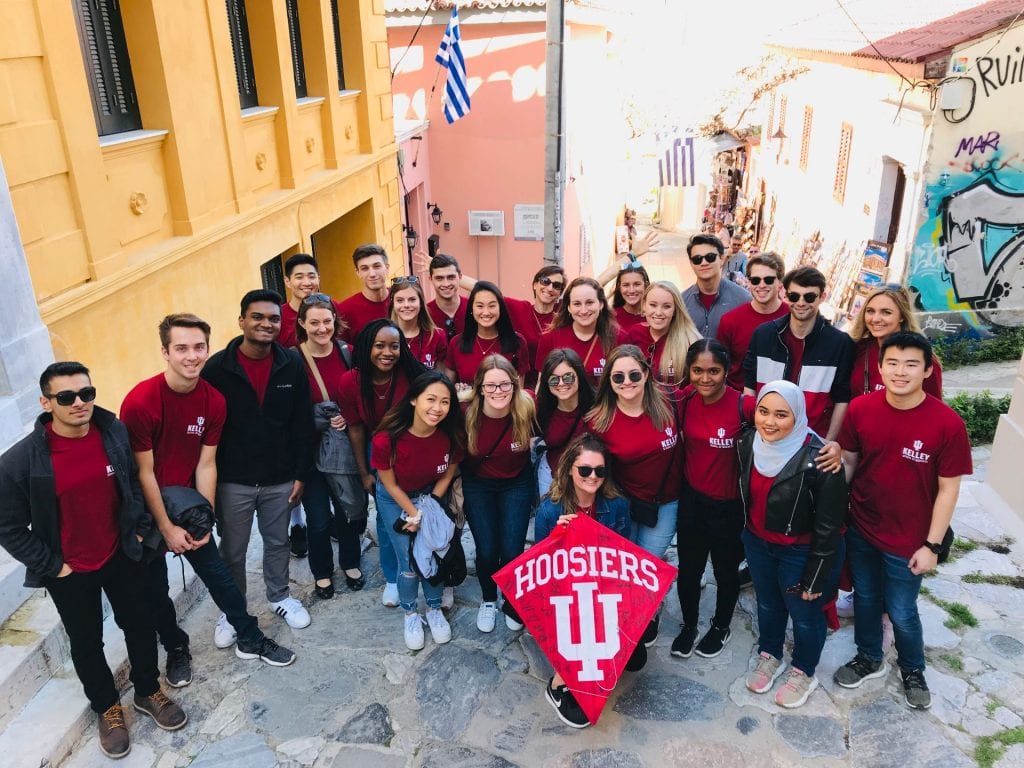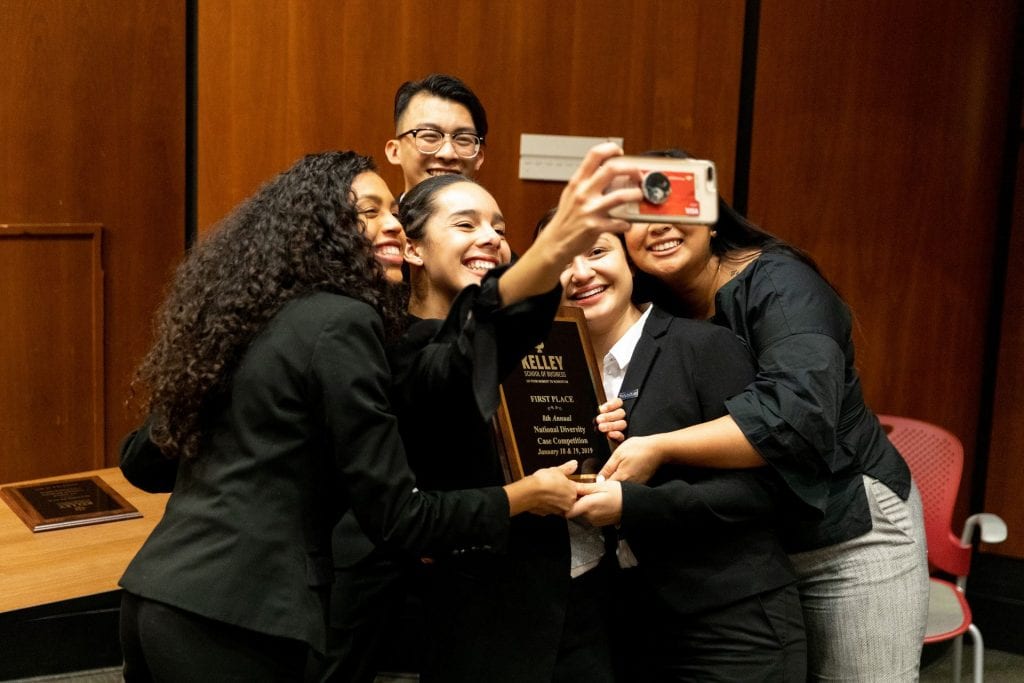
BLOOMINGTON, Ind. – Many around Indiana University, the Kelley School of Business and beyond know of Tatiana Kolovou’s love for the land of her birth, Greece.
As attested by the headline of recent article in Hellas Journal, a major Greek publication, the Kelley faculty member also is known as “the Greek professor in the U.S. who teaches her students to love our country.”
Over the last decade, Kolovou, a senior lecturer of business communication, has taken about 300 Kelley School undergraduates and MBA students to Greece as part of immersion courses about the country, its economy and culture. She and two dozen undergraduate students in her “Business Culture of Greece” class traveled there during spring break on March 10-17.
They visited companies and met with business professionals involved in a variety of industries, including the Greek offices of global advertising giant, McCann; Greece’s leading digital media communications company, Antenna Group; a natural cosmetics company, Apivita; an outdoor recreational products manufacturer, Terra Nation; an olive oil producer and tourism and travel firms.
The people they met included Anastasios Economou, founder of the investment holding company iGroup who has been called the “Mark Cuban of Greece;” and Nikos Panayiotopoulos, a member of Greece’s parliament.









